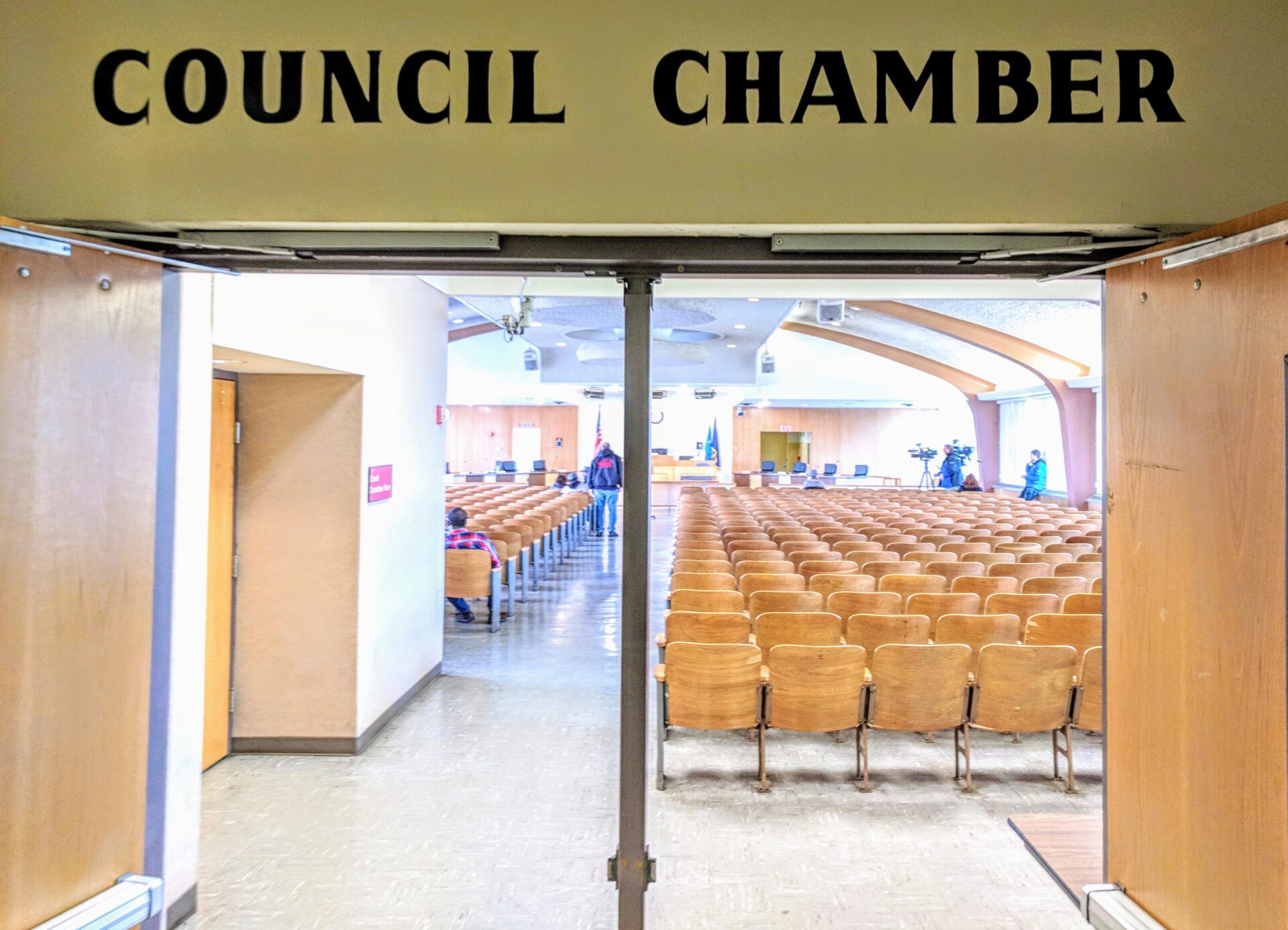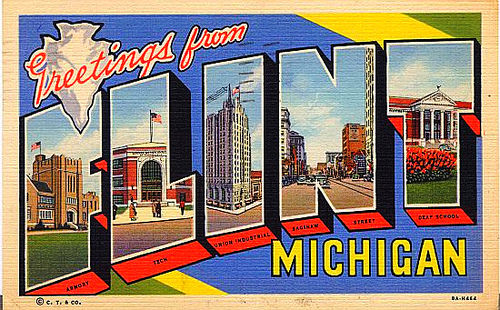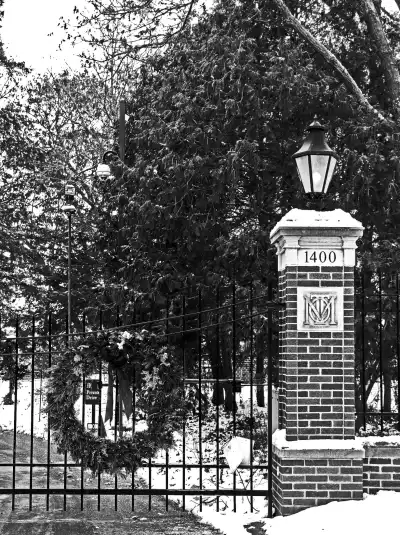By Jan Worth-Nelson

Mayor Karen Weaver addresses a small crowd of community leaders and PepsiCo officials at Bethel United Methodist Church, while workers load water into a steady stream of cars. With Weaver are Pastor Faith Timmons of Bethel; William Kerr, Food Bank of Eastern Michigan; and Tony West, general counsel from PepsiCo.
A $570,000 grant from the PepsiCo Foundation was put to work this week with the launch of two Food Bank-managed community “help centers” aimed at continuing recovery efforts from the Flint water crisis.
In a chilly parking lot under sunny skies at Bethel United Methodist Church, officials from PepsiCo, along with city officials and community leaders, celebrated the collaboration which brings two trucks, supplies of bottled water, food and fresh produce, personal care items, nutritional service, and physical and mental health services.
The two centers are at Bethel, 1309 N. Ballenger, and at Greater Holy Temple COGIC, 6702 N. Dort Hwy.
Hours of the centers are 10 a.m. to 4:30 p.m. Mondays, Tuesdays and Thursdays and 8 a.m. to 2:30 p.m. Wednesdays.
“The water in Flint still isn’t safe to drink without a filter,” Flint Mayor Karen Weaver noted, while thanking PepsiCo for its donation. “This water crisis is much bigger than Flint can handle alone. But with help from our government and community organizations, we will emerge from this stronger and better than before.”
In addition to the food and water supplies, PepsiCo has provided PepsiCo employees pro bono through the PepsiCorps program to consult with local nonprofits about logistics and warehousing, assessing residents’ needs and efficient ways to store and deliver goods and services.
The grant also includes $225,000 to supply nutritious meals for Flint school children. Much attention in the water crisis has focused on child nutrition, based on evidence that some foods can provide “lead mitigation” to those poisoned.
Tony West, Pepsico general counsel and executive vice president of public policy and governmental affairs, who also serves as president of the Pepsico Foundation, said “We consider Flint part of the Pepsico family,” noting that the company employs about 150 Flint residents and neighbors and over 3,000 people statewide in bottling and distribution centers.
“We recognize if our communities don’t succeed, we don’t succeed,” he said.
The Food Bank of Eastern Michigan will manage the Help Centers. Other partners in the program include the Michigan Department of Health and Human Services, the Charles Stewart Mott Foundation, the United Way of Genesee County, Genesee Health Systems, and GST Michigan Works.
The Food Bank has been a key player in relief and recovery efforts during the water crisis, distributing more than 26 million bottles of water and more than 120 truckloads of lead-mitigating foods to Flint residents, according to a press release provided at the launch. The Food Bank also reports it has provided 464,104 meals rich in lead-mitigating nutrients to the Genesee Intermediate School District’s Head Start program. Statewide the Food Bank has distributed over 25 million pounds of food yearly through a network of 415 partner agencies in 22 counties.
William Kerr, president of the Food Bank, praised how a network of over 75 agencies in the city of Flint, along with “the trust of the community of Flint itself” had galvanized around the recovery efforts and in particular, the development of the help centers. “So many groups — United Way, Genesee Health Systems, the State of Michigan — everybody came together around the idea.
“In my 22 years, this is one of the greatest collaborations I’ve ever seen in the city of Flint,” Kerr said.
And he expressed gratitude for the funding support of the PepsiCo response. “The Help Centers are a testament to the resilient strength of Flint,” he said. “The past year has been extremely difficult, yet community leaders and residents continue to work together to move forward and recover.
Among those millions of bottles of water flooding into Flint have been PepsiCo’s Aquafina brand. Asked about the source of that water, considering Flint residents’ concerns about their water quality, a PepsiCo spokeswoman confirmed Aquafina comes from “municipal water sources, regulated by the EPA” — technically the same as Flint’s water before the lead debacle — in essence, from the same sources as tap water.
She added that Aquafina goes through a trademarked purification process known as HydRo-7, which includes “reverse osmosis and other filtering and purification methods to removes things like chlorides, salts and other substances that can affect a water’s taste,” according to an Aquafina website.
The PepsiCo grant to Flint includes about $50,000 for “recycling education and support” in the Flint schools, the spokeswoman said.
EVM Editor Jan Worth-Nelson can be reached at janworth1118@gmail.com.








You must be logged in to post a comment.